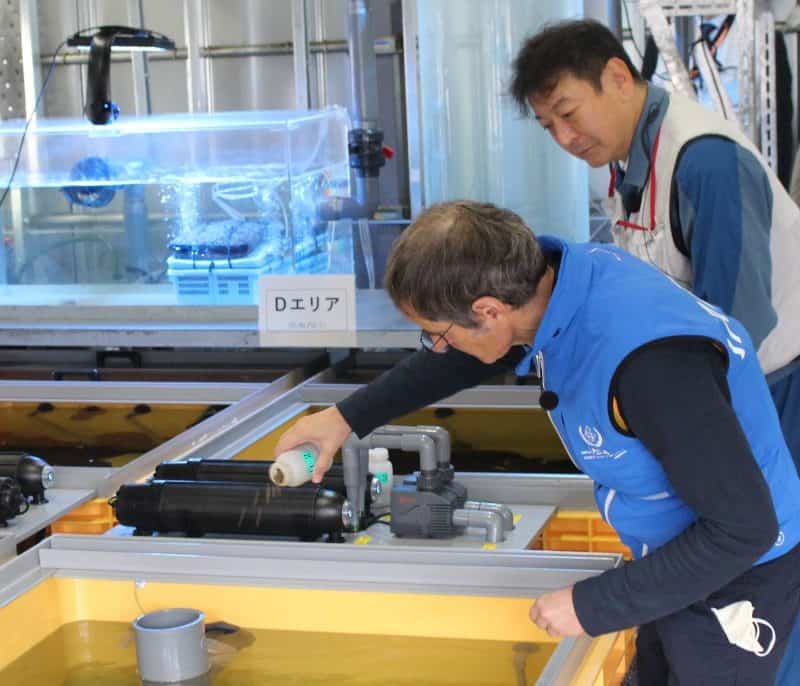The International Atomic Energy Agency (IAEA) and experts from China, South Korea and Canada on Monday collected seawater samples near the crippled Fukushima nuclear complex in northeastern Japan following the release of treated radioactive water from the site, the Japanese government said.
The team is visiting Japan through 23 October to corroborate the country’s marine monitoring amid safety concerns over the water release, which began late August. China has sharply reacted to the discharge by imposing a blanket ban on Japanese seafood imports.
In addition to seawater, the team will collect samples of seabed sediment and fish and compare the levels of tritium and other radioactive substances from those taken last year, according to Japan’s Nuclear Regulation Authority.
The NRA said the experts from China, South Korea and Canada have been nominated by the IAEA and their activities are expected to provide “further transparency” for Japan’s sea monitoring efforts.
The water discharge is seen as a key step to advance the decommissioning of the Fukushima Daiichi plant, which suffered triple reactor fuel meltdowns following a catastrophic earthquake and tsunami in 2011. The wastewater has gone through a liquid processing system that removes most radionuclides except tritium.
The Japanese government has pledged the safety of the water release, to continue for three decades, noting it is diluted to reduce the tritium levels to less than one-40th of the concentration permitted under national safety standards before being released into the Pacific Ocean.
No abnormal levels of tritium and other radioactive substances have been detected in seawater or fish samples collected from around the nuclear plant since the first round of water discharges running from Aug. 24 to Sept. 11, according to monitoring by the Japanese authorities, plant operator Tokyo Electric Power Company Holdings Inc. and the IAEA.
Still, some countries and local fishermen in Fukushima Prefecture have criticised the Japanese government’s decision.
Meanwhile, Russia is restricting Japanese seafood imports as a “precautionary measure” in the wake of the release of treated radioactive water from the crippled Fukushima nuclear power plant, Russian authorities said Monday, triggering a strong objection from Tokyo.
The Russian Federal Service for Veterinary and Phytosanitary Surveillance, in a statement, said Russia has joined China’s temporary restrictive measures regarding the import of fish and other seafood from Japan.
On the same day, the Japanese Foreign Ministry said it “strongly demands” that Russia withdraw the restriction, calling the decision “extremely regretful” as it lacks scientific grounds.
The Russian government said the measures went into effect Monday and will remain in place until it can verify that the seafood meets Russian safety standards and those of the Eurasian Economic Union, a grouping of post-Soviet states.
The executive body under Russia’s Agriculture Ministry announced in September that it was considering implementing the same restrictions as China over concerns regarding the potential radioactive contamination of Japanese seafood.
The Japanese government held a videoconference with the body, also known as Rosselkhoznadzor, earlier this month to explain its methods for safety inspection and testing for radioactive substances including tritium.
The water discharge from the Fukushima Daiichi nuclear power plant, damaged in 2011 by a massive earthquake and tsunami, began in late August, following the International Atomic Energy Agency’s determination in July that the plan adhered to global safety standards.
China imposed a blanket ban on Japanese seafood imports after the first round began.
The second round of water discharge began in early October despite persistent concerns from some countries, including China, and local fishermen. As of 22 September Japan has exported a total of 118 tons of seafood to Russia this year, according to Russian authorities.
